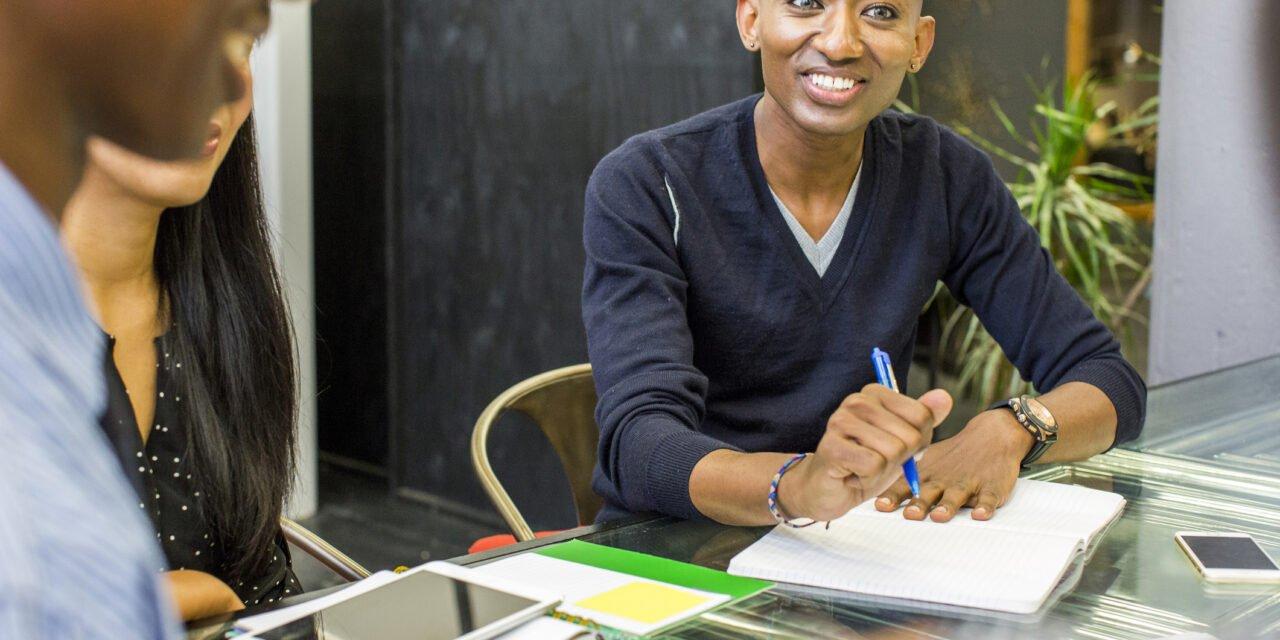
Recently, during a virtual conversation with a colleague, she asked me about the pronouns beside my name. As a cisgender woman, I explained that “siya” is a Tagalog non-gendered pronoun that applies to all people. In addition to “she,” I include “we” in my list of pronouns to show solidarity for normalizing nonbinary and inclusive uses of we, they, and them.
My colleague thanked me for my response, and I was glad to be able to share my vote for solidarity. After reflecting on the exchange, I wondered if I had centered myself and my positionality as someone with hetero, cisgender privileges. This is a constant practice of self-awareness I strive for, and I don’t always get it right.
As an ally to the 2SLGBTQIA+ community, I work on cultivating humility, empathy, and self-compassion in my everyday practice. As an in-house DEI practitioner in health care and technology organizations, I was gifted with opportunities to develop employee resource group programs and diversity, equity, and inclusion councils. In these forums, I had the chance to learn about the lived experiences of my colleagues from diverse gender identities and sexual orientations. I listened deeply to their testimony about the harm caused by casual homophobic and transphobic attitudes in the workplace.
Allyship has gained a bad rap because of some allies’ perceived inability and unwillingness to go beyond performative displays of solidarity. Noted social justice movement builders Deepa Iyer, Alicia Garza, and others have written about and exemplified how allies can leverage their privilege to create opportunities for real and meaningful change.
From an anti-oppression perspective, DEI and human resource leaders must take seriously our responsibility to represent the interests and sentiments of people from marginalized backgrounds. In the current political and legislative environment, we observe the rise of anti-2SLGBTQIA+ legislation in different states. Even if our organizations are not situated in or doing business in these states, we must be conscious of what our colleagues are experiencing outside of the work environment and ensure that we provide support within the organization.
Creating an inclusive and welcoming organizational climate for 2SLGBTQIA+ employees, clients, and community members requires intentional efforts from DEI or human resource practitioners. Often, these roles have the authority to set policies and practices that impact the employee experience.
Here are a few allyship actions that I have learned are effective and continue to advocate for in the workplace:
- Communicate regularly about available resources, such as diversity-focused employee resource groups, training opportunities, and health care benefits. Critical times to share the information include employee onboarding, and during open enrollment for health care coverage. Ensure that people managers have the correct information to share with their employees if they have questions about resources and benefits. PRO TIP: Leverage internal communication channels such as intranet portals and employee newsletters to share available resources and benefits for the 2SLGBTQIA+ community.
- Incorporate education opportunities for employees to learn about the 2SLGBTQIA+ community. Focusing awareness during Pride Month is a start, but be aware that other significant dates are commemorated throughout the year. These include LGBT History Month (October), National Coming Out Day (October 11), and Transgender Day of Remembrance (November 20). A need for support and allyship extends throughout the year. PRO TIP: Do not assume that events and celebrations must occur during Pride Month. Offer flexibility for employee resource group leaders to determine the best time and approach for the commemoration and other programming.
- Make intentional efforts to educate yourself about how best to support the community. Understand the issues that are important to employees who are transitioning or identify as gender-expansive. Many organizations provide accessible resources, including the Human Rights Campaign and the Trevor Project. PRO TIP: Intersectionality is critical to advancing equity for all. Acknowledge that homophobia and transphobia coexist with racism. Some organizations are dedicating resources specifically to raise awareness about 2SLGBTQIA+ people in Latinx, Black, Asian American, and Pacific Islander communities. These include The Audre Lorde Project, Black & Pink, Latino Equality Alliance, Hispanic Federation, the National Queer Pacific Islander Alliance, and more.
From my viewpoint as an ally, it is an honor to walk alongside the 2SLGBTQIA+ community to create and sustain inclusive workplaces that are welcoming and affirming of all identities. This work is only possible if we intentionally build solidarity toward the shared goal of realizing equality for everyone.



















